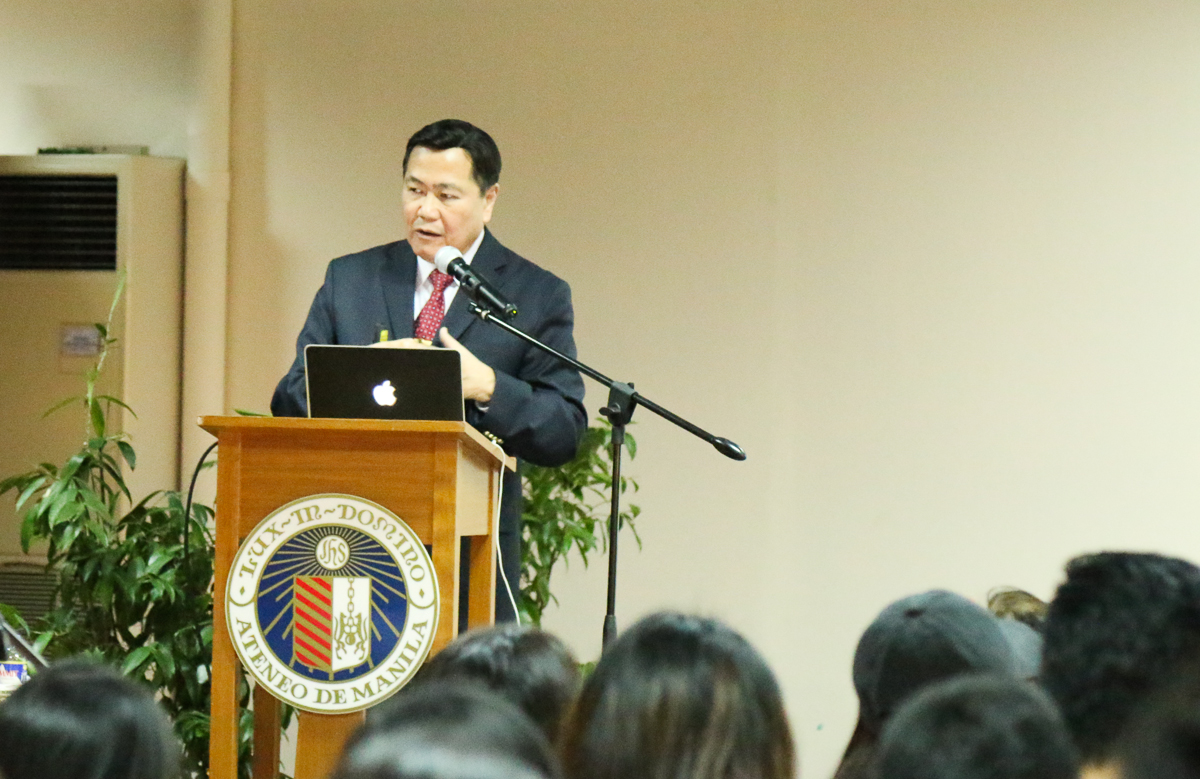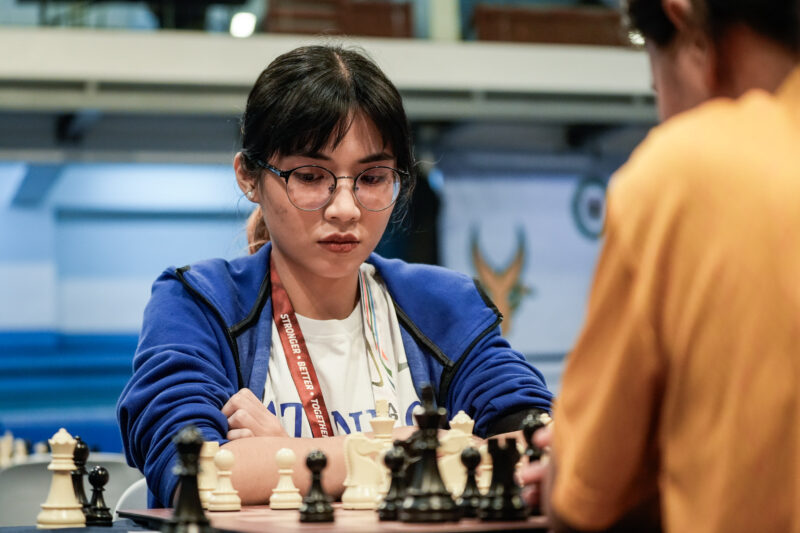ADDRESSING ATENEANS at the Rizal Library on September 9, Senior Supreme Court Associate Justice Antonio Carpio described the maritime dispute in the West Philippine Sea as an “inter-generational struggle.”
In a lecture titled “The West Philippine Sea Dispute: Final Award of the Tribunal and Its Ramifications,” Carpio said that resolving the conflict in light of the ruling of the International Tribunal on the Law of the Sea will take time and will occur across several generations.
“[The resolution process] will take time … we have to convince the Chinese people [of the ruling] because the Chinese government will not comply with the ruling,” he said.
“This is a question of legitimacy for [the Chinese],” he added.
This was in response to the “Three Warfares” doctrine promulgated by the Chinese Communist Party, the Central Committee, and the Central Military Commission of the People’s Republic of China in 2003.
The doctrine advocated the use of public opinion, legal, and psychological means to control the West Philippine Sea economically and militarily.
According to Carpio, these three measures were “parried and blunted” by the Philippines through the decision of the international court.
Establishing a peace park
Carpio said that the only form of settlement agreeable to all nations was to establish a “marine peace park,” across the region.
Under this agreement, nations would get to keep the land features they already control, but would have to convert these places to a sanctuary.
“If you have an island there… you continue to possess that but you convert it to a marine research center or an eco-tourism place for the next 100 years,” he said.
The plan would also call for a cessation of militarization in the area. Military installations already established by countries would remain but would no longer be used for military purposes and only coast guard vessels will remain.
The proposal would put a stop to current Chinese dredging and reclamation operations in the area. According to the ruling of the Tribunal, Chinese operations have caused “permanent and irreparable harm to the coral system [of the Spratlys].”
Changing minds
Carpio said that the Philippines would have to work with other United Nations Convention of the Law of the Sea (UNCLOS) members in order to convince the Chinese people of the rule of law.
“[We have] to convince UNCLOS coastal states that it is in their interest that the Philippines’ Exclusive Economic Zone will be preserved because they might be the next coastal state to be trampled upon,” he said.
“We have to lead in the fighting this battle,” he added.
He explained that the Chinese people have been conditioned to believe that China has dominion over the whole West Philippine Sea.
“All Chinese today… they grew up being taught that they owned the South China Sea for over 2000 years. That’s ingrained in their DNA,” he said.
He said that the ruling of the international court will help in changing the minds of the Chinese people. The independent nature of the UNCLOS tribunal, of which China is a subject, would be seen as a credible authority.
Taking on giants
In an interview with The GUIDON, Carpio said that during the presentation of arguments at the International Tribunal, failure was not an option for the Philippine delegation.
“It was a very serious matter because what was at stake was an area larger than the total land area of the Philippines, and there was no room for failure,” he said.
“When you are defending your national territory, you cannot afford to lose, because once you lose it, you can never take it back,” he added.
However, he maintained that the delegation remained confident of its position. “We studied [the case] very well.”
Moreover, Carpio said that there was much more to be done. “The next generation must work on convincing the Chinese people [of the ruling]. Maybe this will take 50 years, maybe a 100, but we cannot give up,” he said. “History now is on our side, but we have to convince the world to help us convince China [to cooperate].”








It was not the International Tribunal on the Law of the Sea that made the ruling. It was an international tribunal organized adhoc, in which the Permanent Court of Arbitration in The Hague served as the registry.